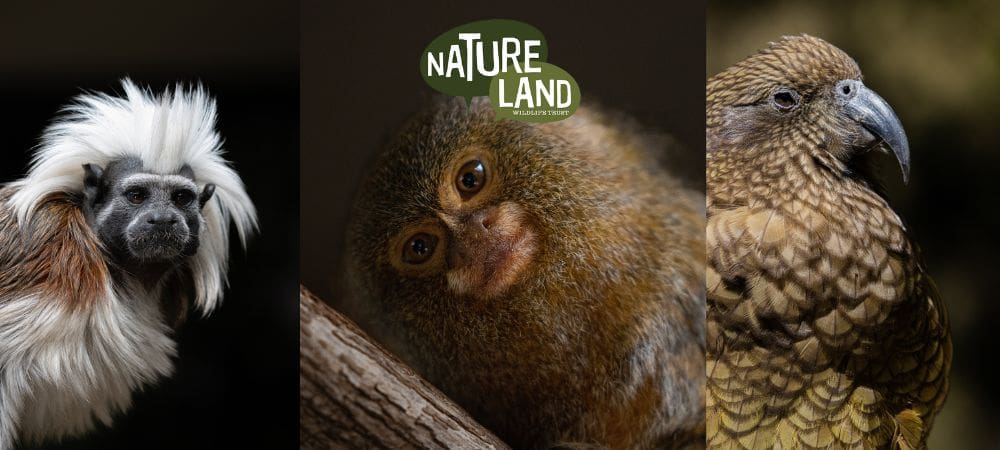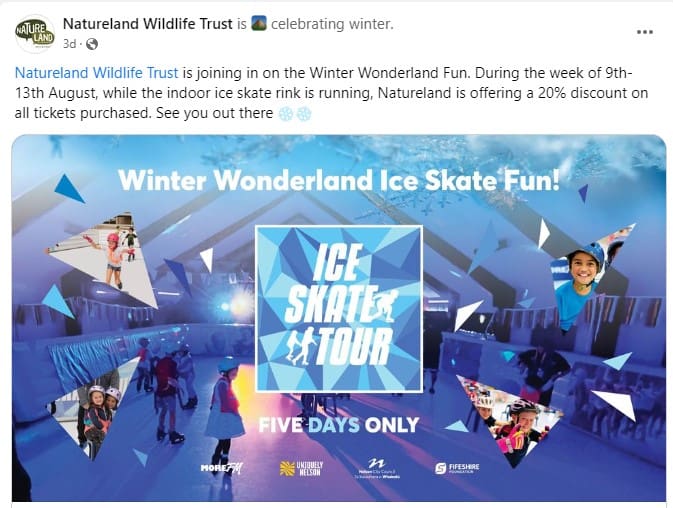Conservation at Natureland
Imagine gently waking up to soft birdsong. The eerie melody trickles into the dawn, blending with the early morning light on the horizon. You hear the distant piercing calls of Kea and Kākā, Tui and Bellbird sing sweetly, competing for the most beautiful voice in the forest, cheeky Kākāriki chitter and chatter speedily… fantails squeak in delight like squeaky cork lids. The array of melodious sounds grow louder and louder, until you have to raise your voice to talk with the people around you. Then comes the haunting call of the South Island Kōkako, echoing calmly above the rest, ringing through the whispering leaves and echoing out into the valley.
This was Aotearoa, New Zealand. This was our dawn chorus, not so long ago.
Early European settlers wrote that our forest had the loudest dawn chorus they’d ever heard. Māori pūrākau and waiata talk of the abundance of wildlife and birdsong within Te Taiao, Nature. Now there are many places in NewZealand devoid of sound, even in the early hours of dawn. Empty spaces along our coastlines, rivers and forests that were once filled with the world class orchestral sounds of our native birds.
Not everyone knows that Natureland contributes greatly to New Zealand’s conservation efforts. In fact, it is why we do what we do.
Our team is dedicated to protecting New Zealand’s endangered species through various conservation programmes. Our focus lies on three key species: the South Island Kākā, Yellow-Crowned Kārāriki, and Pāteke (brown teal), each of which face significant challenges:
South Island Kākā (Nationally Vulnerable): The South Island Kākā is classified as “Nationally Vulnerable” due to habitat loss and predation. Natureland’s Breed for Release programme aims to increase the population of this beautiful parrot by breeding and releasing them into the wild.
Yellow-Crowned Kākāriki (Near Threatened): The Yellow-Crowned Kākāriki is now classified as “Near Threatened” due to habitat destruction and introduced predators. Our conservation efforts involve breeding and releasing these birds to help stabilize their populations.
Pāteke (Endangered): The Pāteke, or brown teal, faces a critical situation, officially classified as an “Endangered” species. Natureland is actively involved in breed and release programmes to safeguard their future.
As well as caring for New Zealand’s precious endangered bird species, Natureland takes pride in caring for endangered animals from around the world. Did you know that modern day zoos are the one of the most crucial players in helping fight global extinction rates for animals? That’s right, zoos are incredibly important in the face of mass extinction. Here at Natureland we look after many incredible animals from around the world, such as Cotton-top tamarins from the tropical forests of northern Colombia, who are one of the most threatened primates on the planet. We care for gorgeous pygmy marmosets who are at serious risk of extinction due to the horrendous pet trade and deforestation. Black and white ruffed lemurs are in grave trouble due to 80% of Madagascar’s forest being cut down, alongside hunting. The team at Natureland feel that as humans it is our responsiblity to help conserve not only what is native to Aotearoa, but to aid in the survival of the world’s inhabitants.
Conservation is a team effort, which is why strive to seek collaborative opportunities with other conservation organisations, including our current work alongside Project Janszoon, Pāteke recovery programme, Pūkaha National Wildlife Centre, Department of Conservation (DOC) and Battle for the Banded Rail. Whenua Iti, Brook Waimārama Sanctuary, Tasman Bay Guardians and NZAEE are also organisations we are excited to be developing collaborative partnerships with.
Drop by into Natureland to check out the amazing conservation work we are doing, each visitor through our doors helps support our efforts.



This Post Has 0 Comments